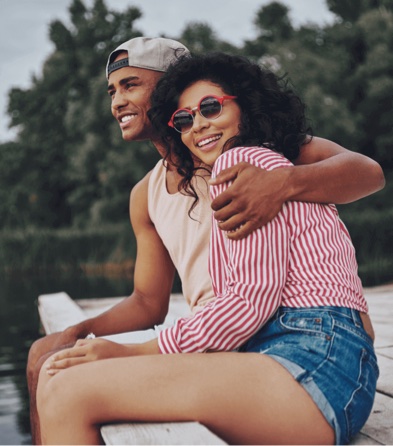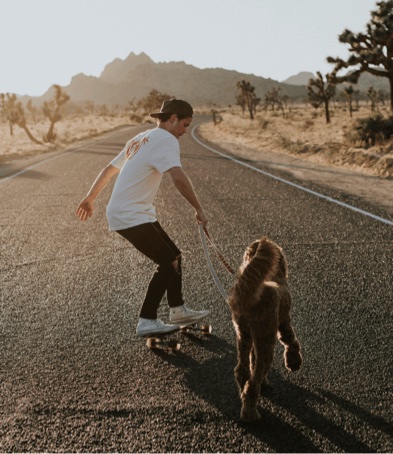5 Things to Do in Little Tokyo, California
Never been before? We’ll be your trustee Little Tokyo guide with a day’s worth of fun things to do in Little Tokyo.
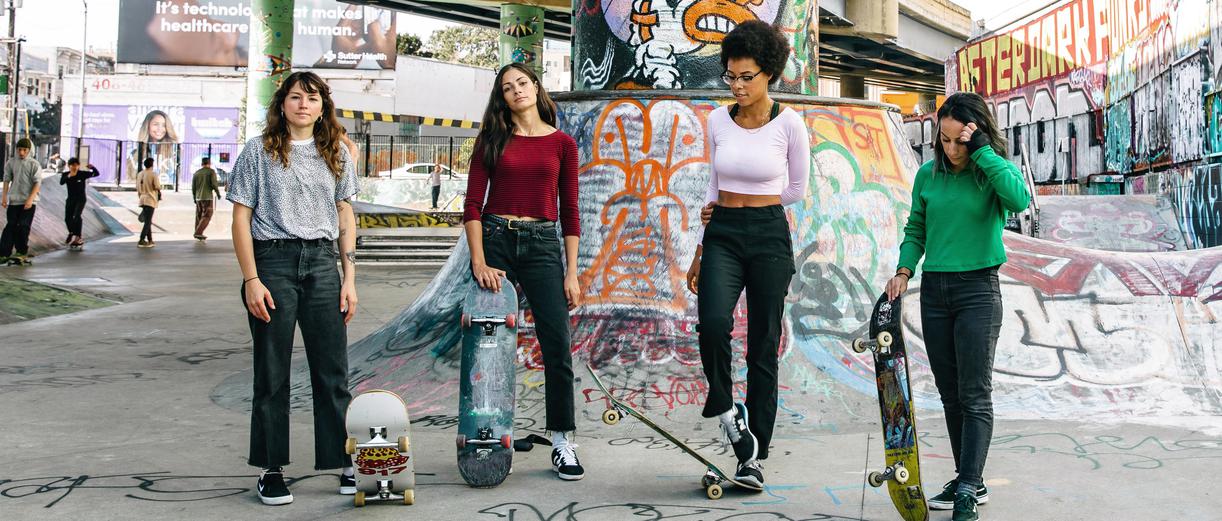
While California’s skateboarding scene might appear to be much more inclusive than it was when boarding first began, it comes as no surprise that skating culture is overwhelmingly dominated by male athletes. Between offhand comments about a woman’s involvement in skating, a collective fear of failure, and the lack of representation in the skateboarding world, getting into and sticking with skating can be challenging. That’s why we’re so inspired by those who break barriers, conquer their fears, and claim the sport as their own.
So we sent our talented photographer, Brin Hanson, to meet up with a group of equally passionate San Francisco skateboarders: Michelle Fernandez, 29; Marsha Howard, 31; Sabrina Luppi, 29; and Natalie Reyes, 28. She spent the day with them at one of San Francisco’s coolest skate parks to get to know California’s skate culture a little better. Whether or not you skate, it’s easy to get inspired by the encouraging bonds this group has formed through their enduring love of skateboarding and the empowerment they continue to lend one another as they navigate the tumultuous industry as females.
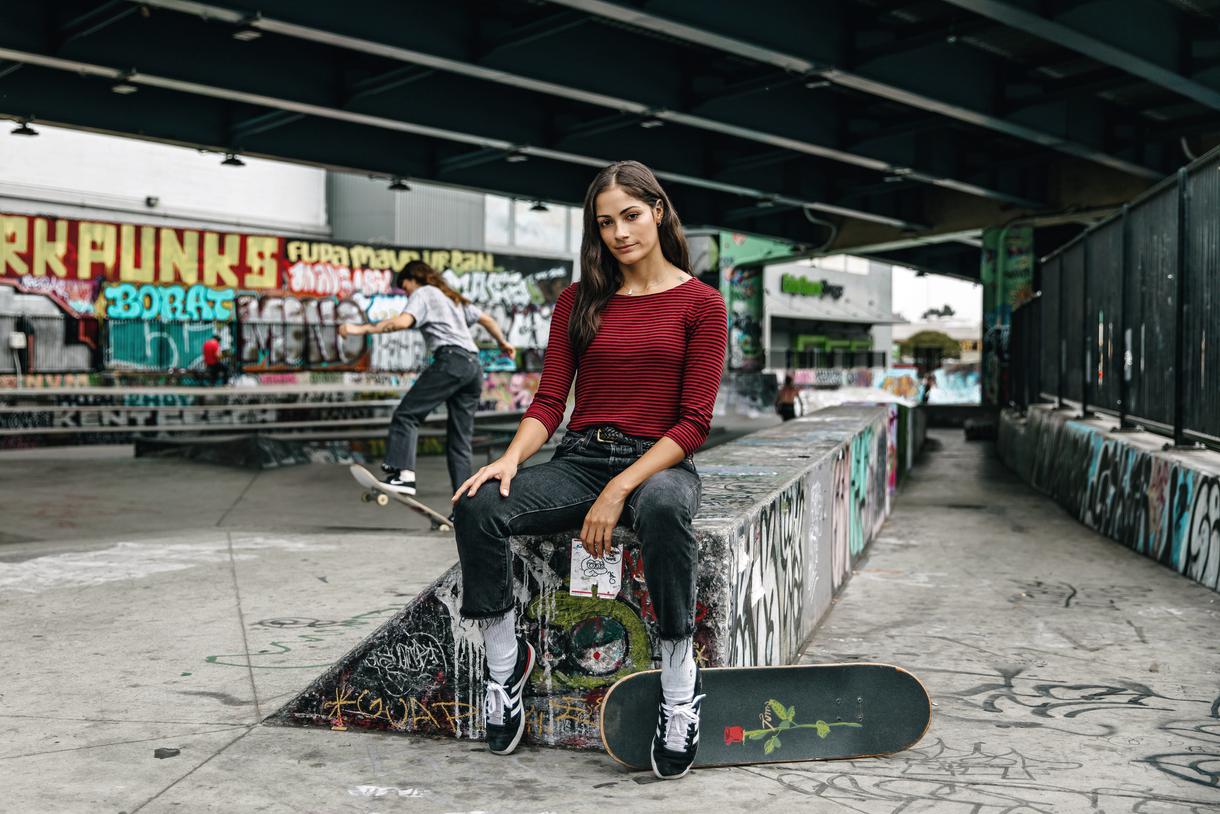

Does your business rank among the best in California?
nominate a businessLearn more about our selection criteria and vetting process.
Marsha: I’m from San Francisco and grew up in the Mission District. I got into skating when I was 14 because bikes were too expensive and my mom gave me a skateboard instead. But I kept that same skateboard for like five years, and then I got a new one, and I’ve been loving [skateboarding] ever since. From about [age] 13 to 17, I had the same skateboard because I didn’t have the money to get a new one. Skating as much as I skate now, I change my board about every six months or so, but back then, I was just sort of cruising around, learning how to ollie. But that board lasted and wasn’t shitty even when I gave it up; it was pretty good and lasted a while.
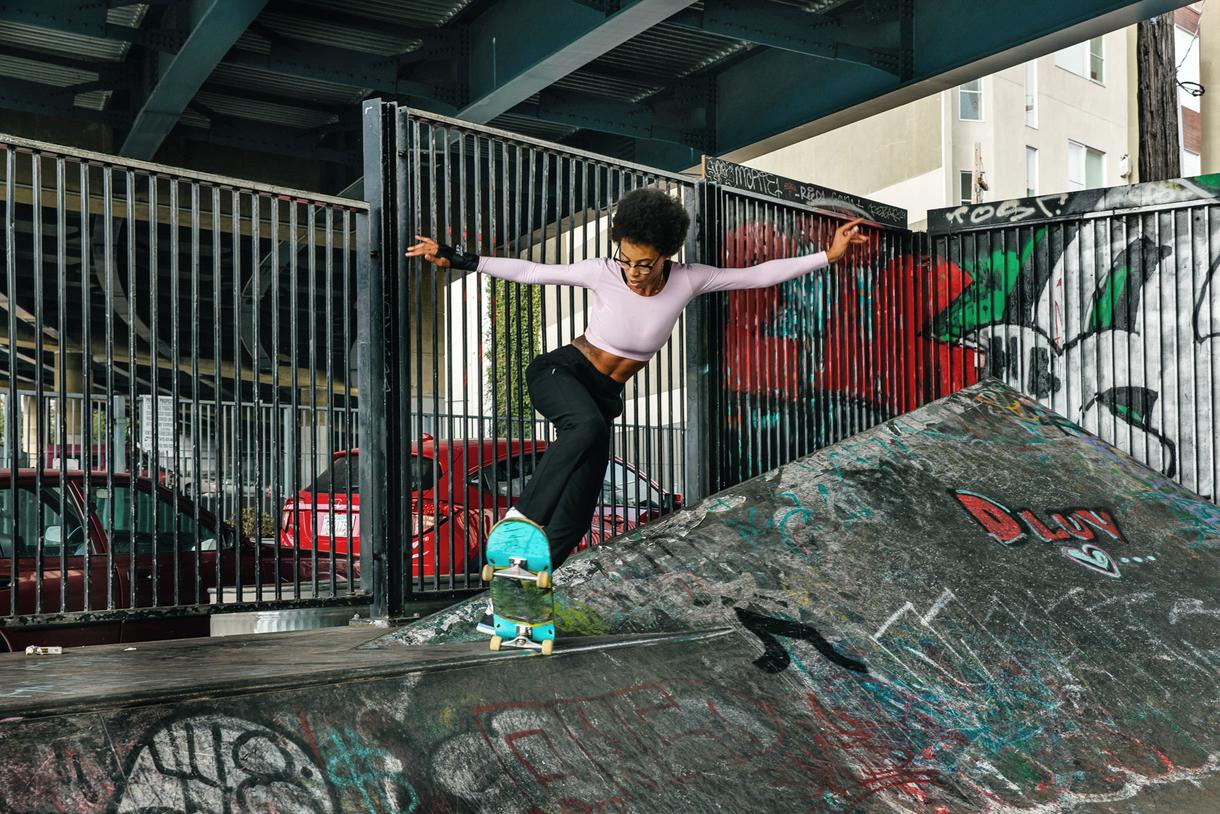
Michelle: I got into skating when I was eight years old. I grew up with an older brother, and he got a skateboard for his birthday. Everything he got I had to get, too. He kinda stopped skating, but I kept skating until I was 18. Then I quit for a while, but about a year and a half ago, I started skating again, so it’s always been a part of my life. Skating and the culture and everything about skating have always been a part of my life, and I quit for the wrong reasons. There’s a big community of girls [in San Francisco], and I knew that, so I thought, I’m just going to start skating, and maybe I’ll make some friends and see where it goes.
Sabrina: I got my first skateboard when I was 11—but it was one of those Looney Tunes, REI boards. All the boys on my block were skating all the time, and they ditched their bikes for their boards, so I wanted to do what they were doing. I never really got into it because I always got, “Haha, you’re a girl; blah, blah, blah,” and I didn’t have the confidence to be like, “I don’t care, I’m still going to do it.” So in high school, all of my best friends were skaters and were all guys. They’d try; they’d be like, “This is Elissa Steamer; this is Alexis Sablone,” and they’d show me videos. But I was like, “Those girls rip; I’ll never be like that.” I didn’t believe in myself in that area. I definitely tried to ollie in high school and roll around, but I couldn’t bring myself to go to the park by myself, honestly. Just hearing how the guys would always talk about the guys there—they were so competitive, and I couldn’t handle it.
I rolled around and would try to film my friends for a while because I’m into filming, so that was kind of a big thing. Then one day I was like, I really want to be able to film and be with my friends who are skating and be involved instead of just being on the side and watching. One day, Natalie—who’s been my best friend for like 10 years—was like, “I’m going to start skating,” and she just started. She’s got the kind of personality that goes and goes; she’s not scared of anything. She sees our friends doing something and she’s like, “That’s cool,” and just does it [on the] first try. Once I saw how much fun she was having and how she was celebrating all of the little progress steps and just really enjoying it, I was like, I want to do that with her, and we would build off each other in that way. And we became obsessed. For so many years, I wanted to [skateboard] and would even try to go to the skate park, but I just let myself get too intimidated. But I’ve always admired the women who have been doing it despite that.

Marsha: I was like that person in high school—I just wasn’t good at making friends. So when I did make one girl friend, I’d be like: “Here, ride a skateboard. Try to skateboard, try to skateboard! You should get a skateboard. Get a skateboard! Try my skateboard!” I was always trying to force any girl friend that I made to ride a skateboard. That probably wasn’t the best way to get someone on a skateboard, because they usually fell once and were over it, and I lost a friend.
Natalie: I got into skating from watching my boyfriend skate and going to the skate park all the time. I started skating two years ago, so I was 26. I’d always roll around while he was skating, but then I was like, No I want to actually try to do something. And watching skate videos all the time gets you pumped up, and I was like, I just want to try stuff; I think it’s time, and I started skating. I would skate with just him because, like [Marsha] said, there were no girls that really were skating a lot. And then when [Sabrina] was down to skate, I was like, Perfect! Now I have someone to skate with that’s not just my boyfriend—because when he’s with his dudes, I’m the only girl. So then we were kind of at the same pace, learning shit as we went.
Sabrina: I actually was really excited to have Marsha and Michelle here. But Natalie was the person that really got me into skating, so I’ve always looked up to her—like immediately. I remember the first time I ever heard about Marsha; me and Natalie were at Treasure Island, and Marsha pulled up with some friends, and Natalie was like, “That’s Marsha, she’s so good!” She knew her from Instagram; that’s another thing that I think helped a lot of women get into skateboarding: Instagram, because of the visibility. So, she had recognized [Marsha] and then we were watching her skate, and I was like, “Whoa! She’s amazing.” Also, Marsha’s closer to our age. A lot of people treat you like, “Oh, you’re still skating? Blah, blah, blah.” So, to see a woman skating that hard and loving it so much is really inspiring.
And I remember the first time I saw Michelle skating; I was like, I’ve never seen a cleaner kickflip, and I was really wanting to have girls [in San Francisco] that I already was already looking up to. So, it’s nice that there are these women here and at the parks and at the spots that you go to all the time, and you can establish relationships with them.
Natalie: I think that just watching skate videos from the early 90s and stuff like that [had a big impact on me]. Elissa Steamer is someone I’ve always looked up to. And it’s cool because she lives in S.F., so we see her a lot. And she’s not Insta-famous—she’s famous-famous.
I remember going to Thrasher and my friends being like, “Oh, you have to meet Marsha,” and I was like, “Oh my god! Can I take a picture with her?” Sabrina

Sabrina: [Elissa Steamer] is amazing. We have a picture with her! And she’s so cool. If you ever get the chance to meet her, she seems a little shy, but she loves to see women skating. And when people say, “Thank you, you’re a legend,” I can tell that she appreciates that.
Michelle: When I was growing up, my idols were Chico Brenes, who is also a local S.F. legend; I used to watch all of the “Chocolate” videos. Also, Foundation - That’s Life’s Corey Duffel is a big inspiration; he’s like the biggest Thrasher-y skateboarder out there. And Elissa Steamer, of course, because she was the only lady out there reppin’ skateboarding. And as I got older, you wouldn’t even imagine the support [I received] from the girls in S.F. Now, I get so inspired and hyped watching my friends’ 30-second clips on Instagram. They’re just incredible. All the ladies.
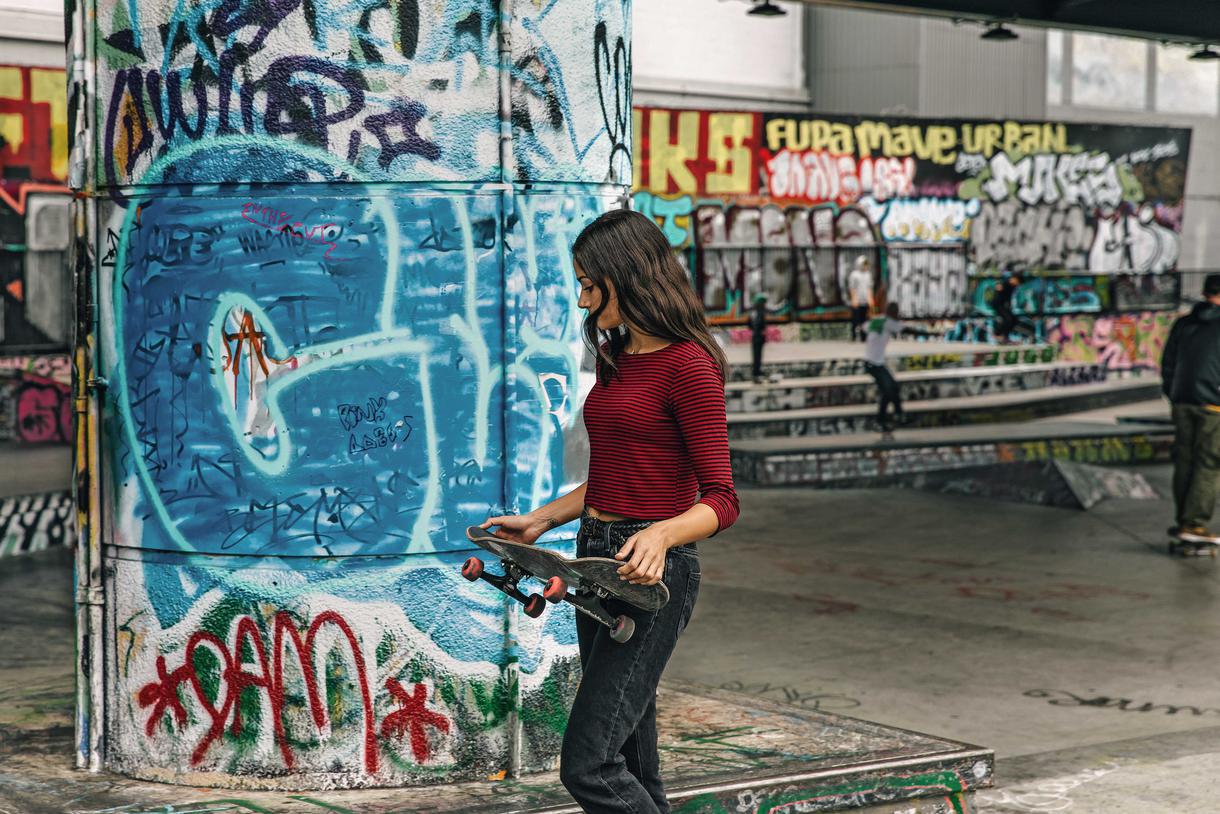
Marsha: I met Michelle [while] skating at Pier 37. I work at Thrasher, the skateboard magazine, and Sabrina has a friend that works at Thrasher, so [Sabrina] came to my office. I was out at the time, like at lunch or something, and [Sabrina] asked to meet me. Someone else came to my office later and was like, “Some girl came by and wanted to meet you. She didn’t care about meeting anybody else in the office; she only asked to meet you.” I was like, “What?” We have a private skate park at my job, so I went across the street to meet her and said, “What's up?” I’ve been hitting her up ever since, trying to get her to all the seshs, to jump off things, to drop into things, and to fall. And Nibblah (Natalie) I met through Sabrina.
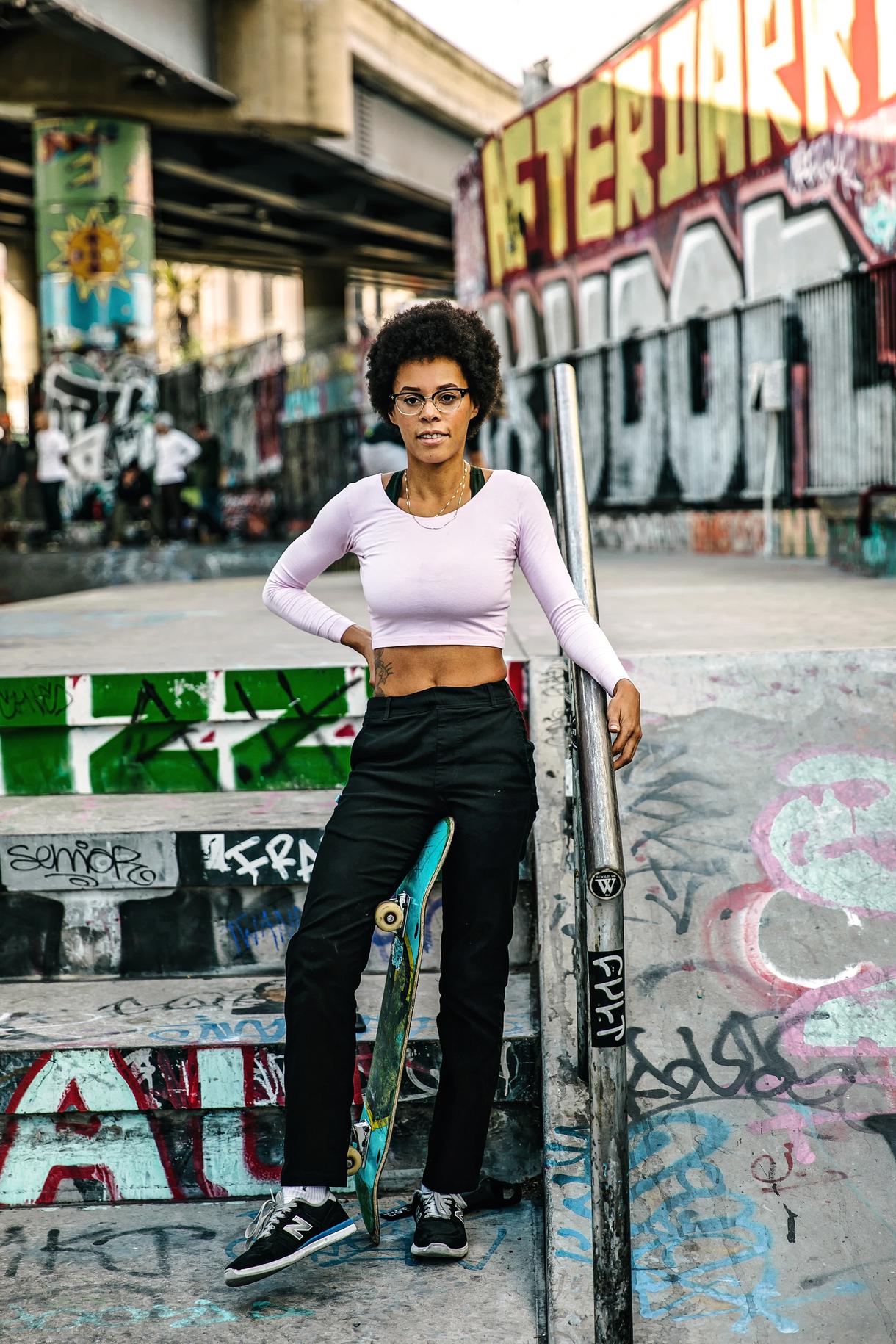
Michelle: When I first started skating again, I didn’t know anybody at all. And I would make a point to say hi to every girl I saw and be friendly. That’s how I started becoming friends with people; that’s how I met Sabrina. [When I met] Marsha, I was already meeting some other girls [at the skate park], so there was already a connection, but it can also be kind of intimidating because a lot of girls are cliquey. You see a lot of girls have their skate groups, and it’s not like you’re not welcome to it; we all skate together.
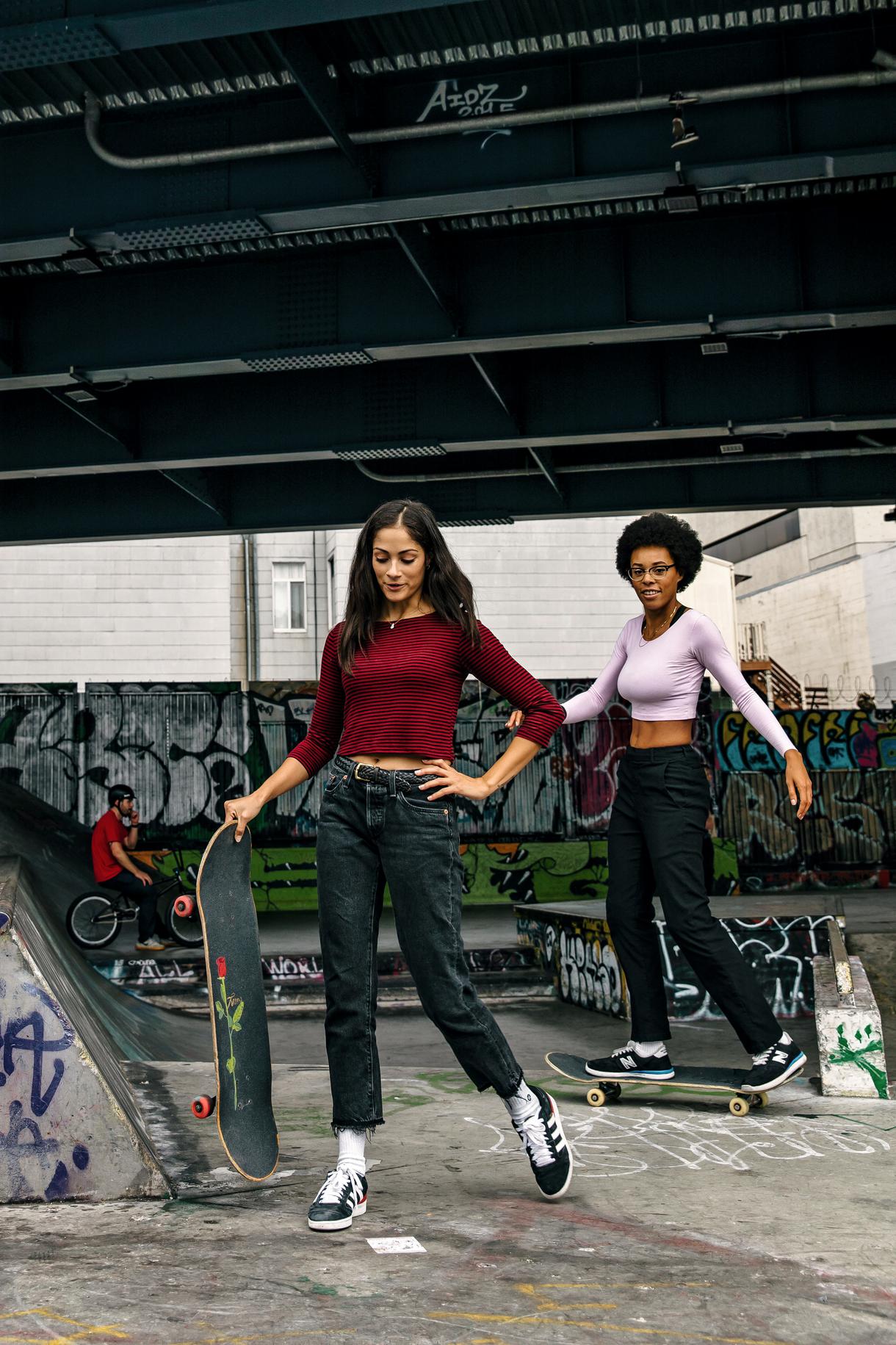
Sabrina: [Natalie and I] were skating every day for six months because we both had a situation where we weren’t having to go to work or school for six months. We were both in-between things, and we both had a lot of time to skate. So, it was me and her for so long, plus the dudes that we grew up with and hung out with, and her boyfriend. And once we both got jobs and had to live real lives, I started going to the skate park by myself a lot. That’s when I recognized that there are different types of skaters; there are skaters who really focus on skating and are constantly pushing themselves to do better. I started seeking out those people, and it was really easy to find that in the skateboarding world of San Francisco, ’cuz the girls that skate really want to be skating. It takes a lot of patience and determination, and that’s what I cared about. That’s how I heard about Marsha, and I was like, It would be so cool to meet her. I remember going to Thrasher and my friends being like, “Oh, you have to meet Marsha,” and I was like, “Oh my god! Can I take a picture with her?”
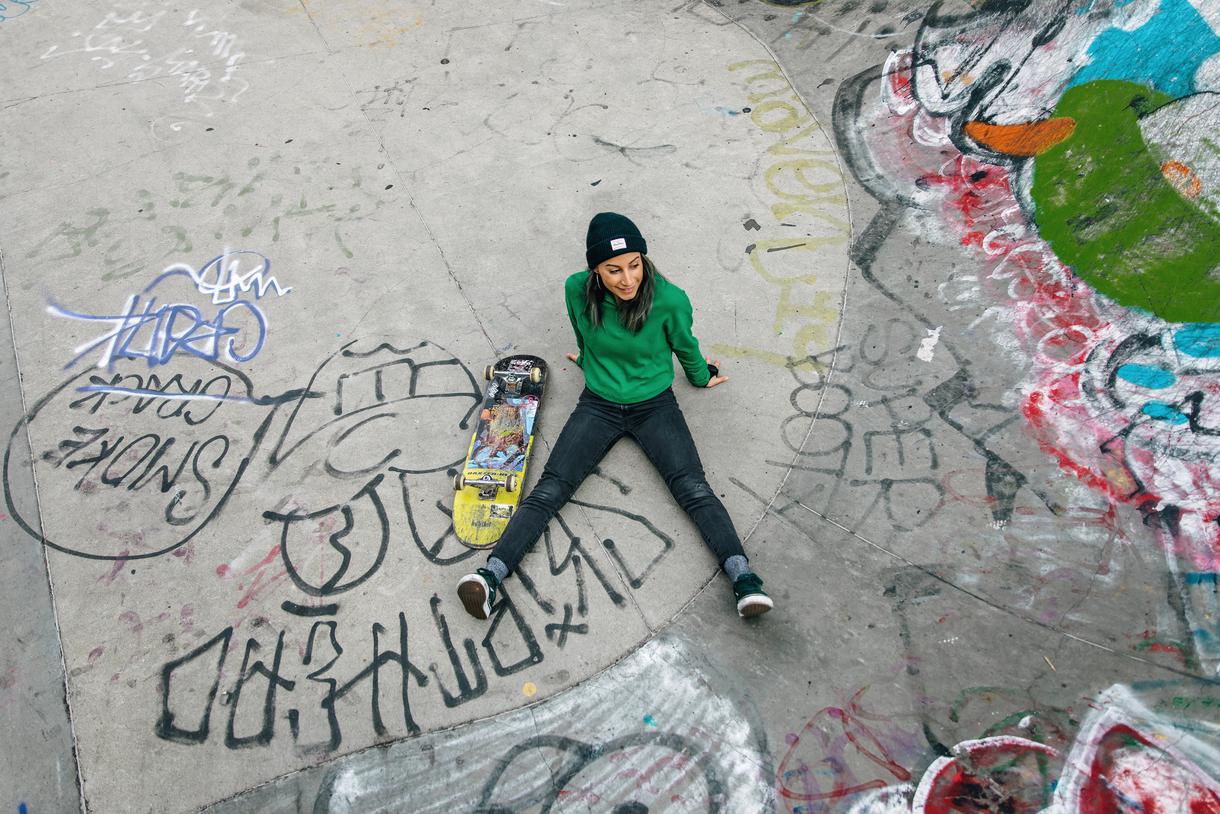
Michelle (to Marsha): Yer a celebrity, dude.
Sabrina: No, yeah. I was so intimidated. I thought it would be like, Oh, we’ll just take a picture. And then she started hitting me up to skate, and I was like, She wants to skate with me? No way! I always feel that way, especially with people who are so good that I really look up to them. Like, why do you want to skate with me? But I think it’s because we all really thrive on that hype and that energy. So, that’s how we’ve built communities. Every time I see a girl at the skate park, I don’t care if I know her or not. I’m like, “Yes, get it! You’re amazing!” And then we’ll figure out if we’re friends later.
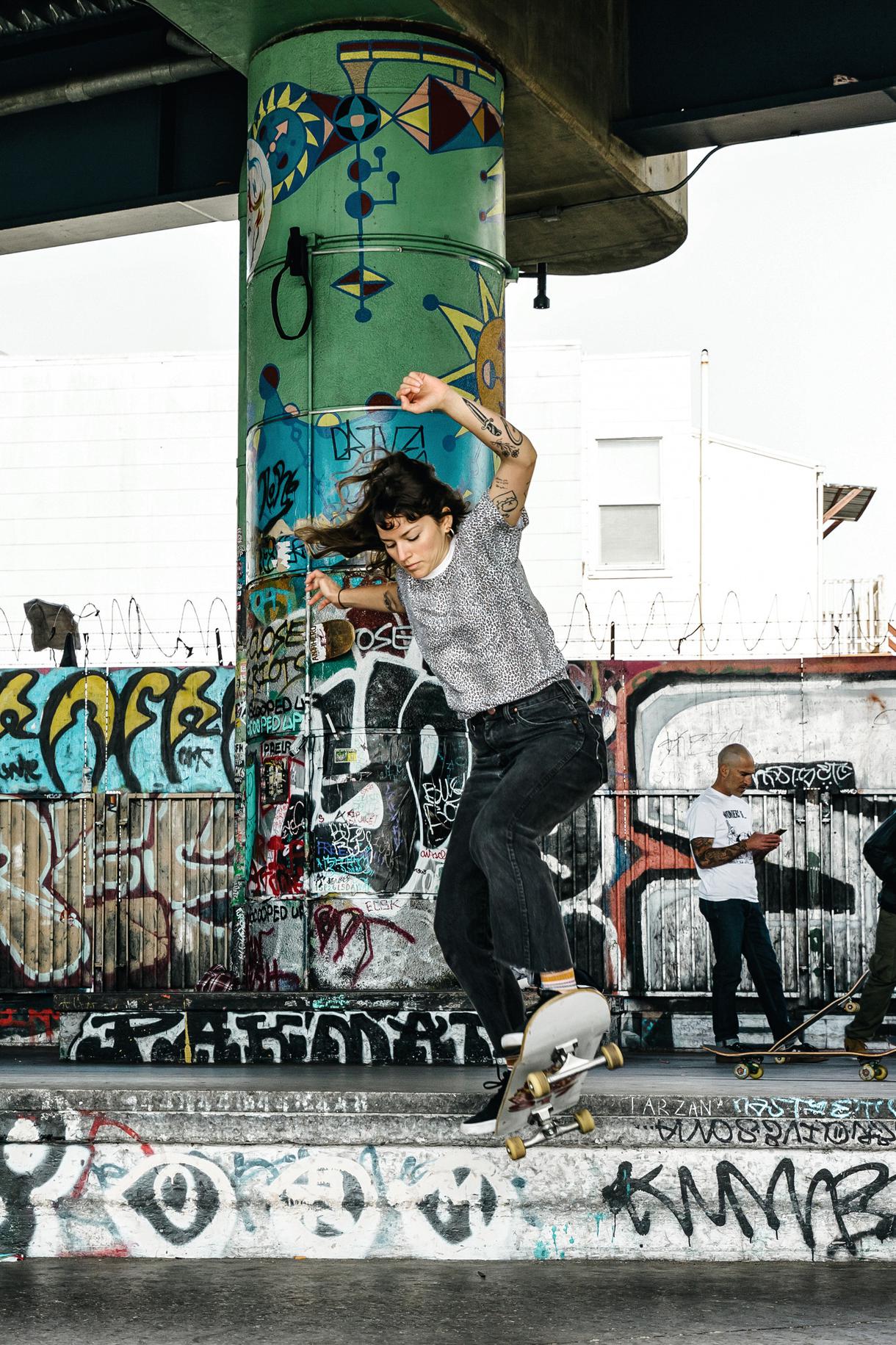
Marsha: I think just being there and showing face is empowering. Like when I hit up my friends knowing that they’re down to meet up and skate—despite knowing that there’s going to be a park full of dudes and it’s just going to be the two or three of us—that right there is all I could ask for. Showing up is enough.
Michelle: I think empowering my friends is genuinely being excited about everything they do, because it is so intimidating and hard to just be yourself; being open to falling; being open to f***ing up; being open to trying the same thing 30 times, even if it’s just an ollie—which is probably the most basic trick in the book. [It’s about] being supportive of the homies.
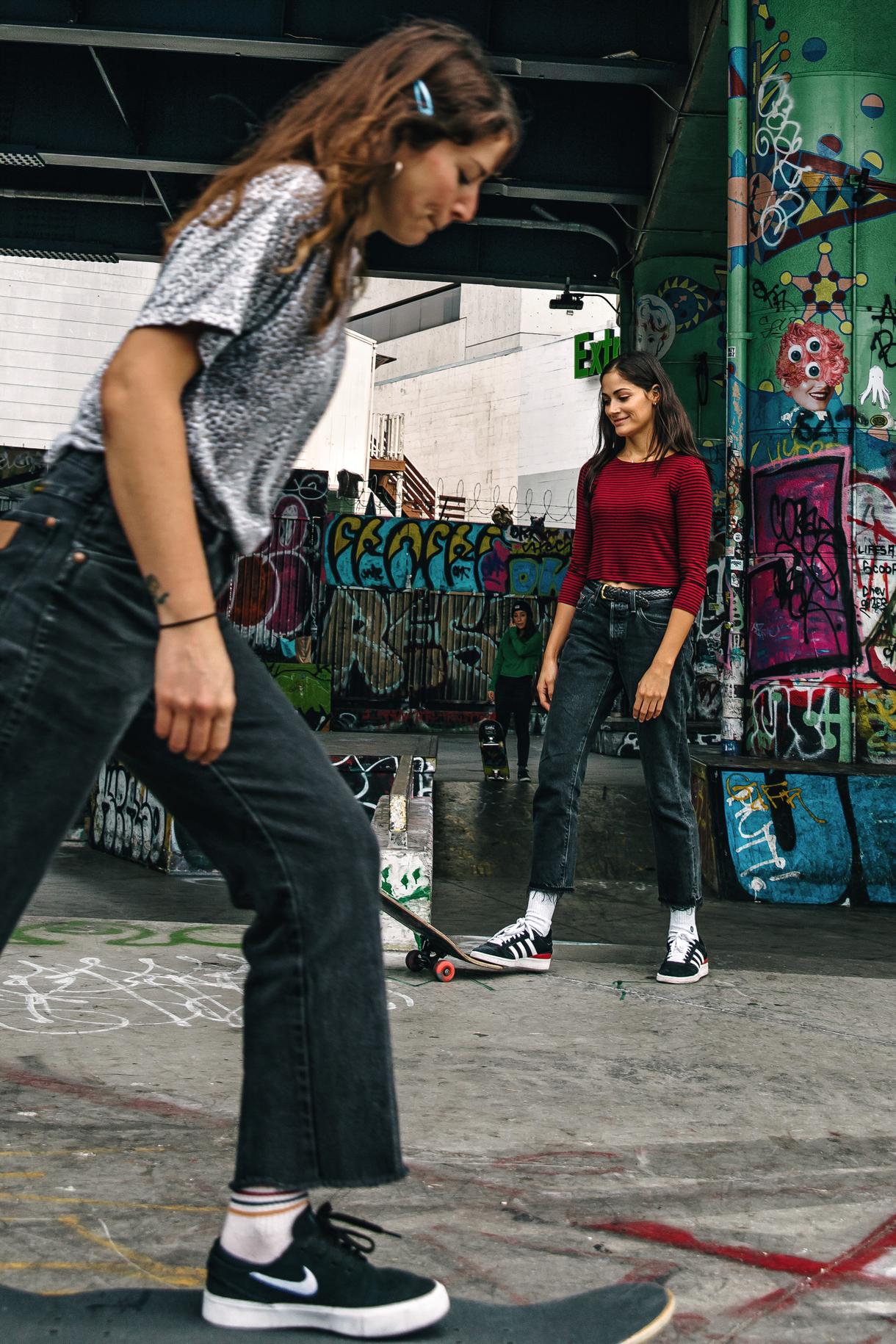
Sabrina: That’s real. That’s so real. And to [Michelle’s] point, I genuinely get so excited for my friends when they even come a step closer to landing something that they’ve been working on. So for me, [it’s about] being encouraging. I’m really out here screaming, grabbing my phone, and sitting here filming you for two hours to get your first ollie on film. So, I think having that passion and excitement for skateboarding really helps encourage others to have the same.
Natalie: Watching the progress, it does take time. And sometimes, you don’t learn things in one day, especially the tricks. So, seeing [skaters] go through it—falling, getting back up—and the determination is awesome, and I get really stoked just seeing them trying everything. That keeps all of us going and gives us more motivation and gets you more hyped up.
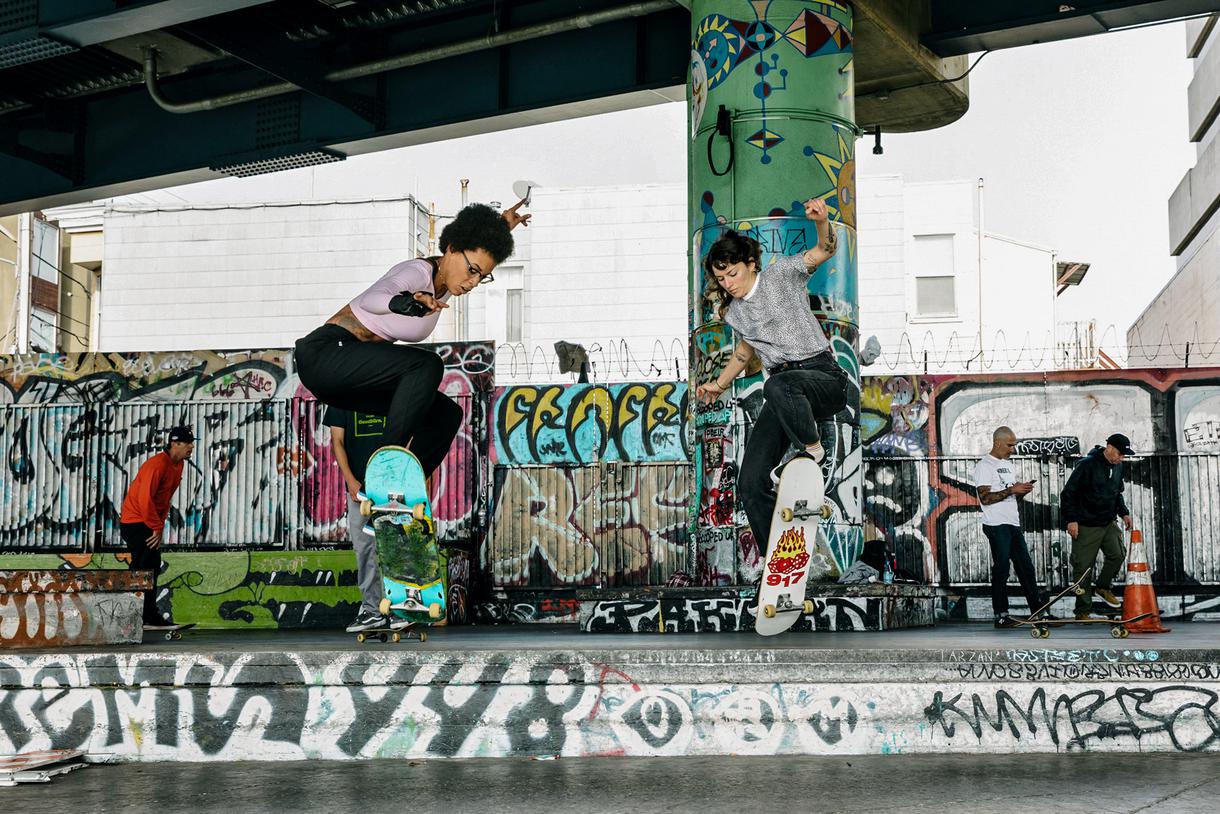
Marsha: Just get out there. You’re not going to learn anything from holding onto your skateboard or posting about wanting to skate on Instagram or Facebook. You’ve got to actually get out there, whether it’s just in your front yard, on your driveway, whatever. Make sure you’re actually making an effort to try to skate.
Michelle: Don’t worry about what anyone thinks about you or [if anyone] is looking at you… because honestly, if you’re standing in the corner all nervous, people are going to judge you. But if you’re literally trying the same trick over and over again, when you land it, you’ll see that the park will [be in an] uproar. [People] see you’ve been trying [a trick], like 40 times, and then you land it, and everyone is super excited.
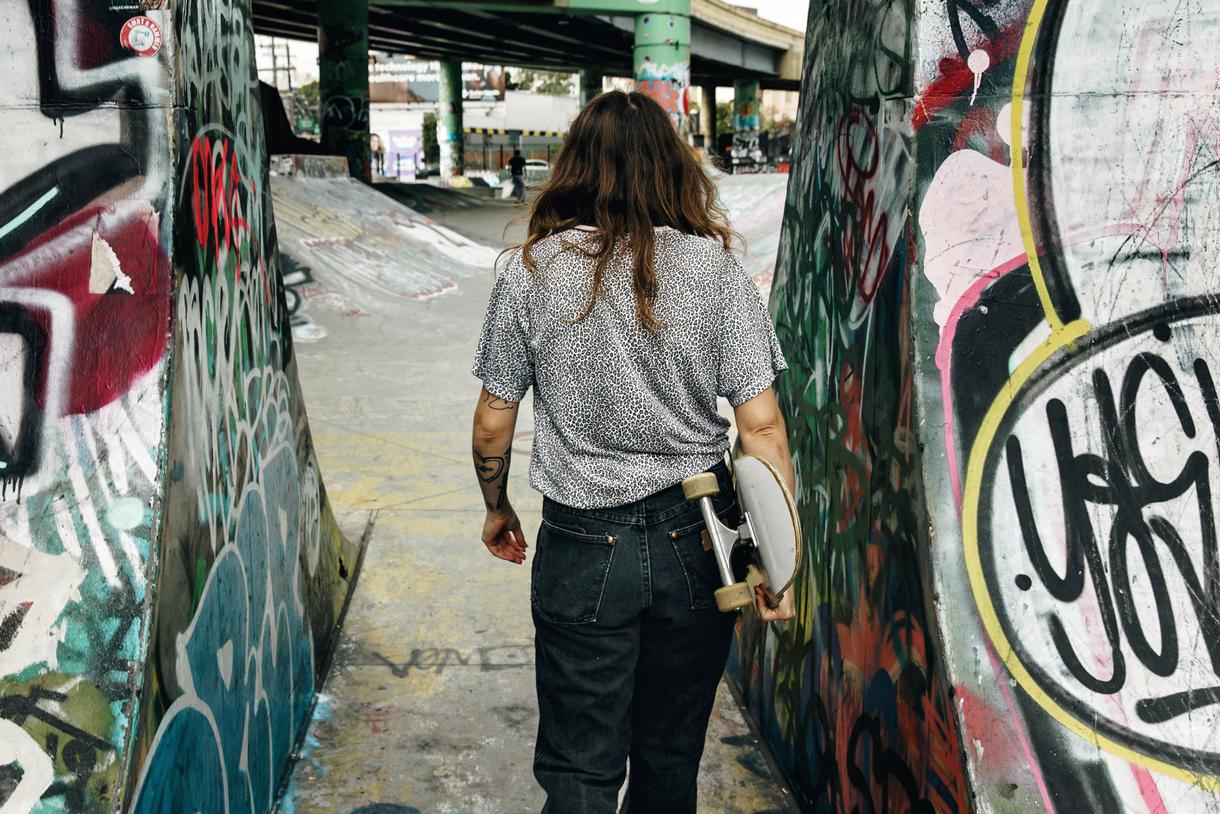
Sabrina: My advice is to take up space and to encourage your friends to take up space, because I see a lot of girls who want to show up to the skate park and then they’re like, I’ll just go to this little corner and try things over here. And it’s like, Well, people are going to stare at you no matter what, so give them something to stare at. Have fun, and don’t worry about what people think of you; just go for your trick. I think taking up space is something that women are a little more shy to do—in all aspects—and especially [when] walking into the skate park. I used to feel like I was in the way of everybody and I was always getting in these dudes’ way. But it’s actually like, These dudes need to pay attention because I’ve been skating here.
Natalie: Just have fun. Don’t be so self-critical. If you want to learn something but think it’s stupid, it’s not. Just try it. That’s what’s going to get you to the next step and the next step. You have to start with baby steps. That’s what I started doing. I was being self-critical and saying, “That’s not even anything. What is that?” And my boyfriend wanted to post it, but I’d be like, “No don’t post it, it’s stupid.” He’s like, “No, it’s sick. Stop. You’re having fun and you can see it when you’re skating, and that’s what’s cool about it.” So, I think that’s the most important thing: Have fun, and don’t judge yourself too hard.
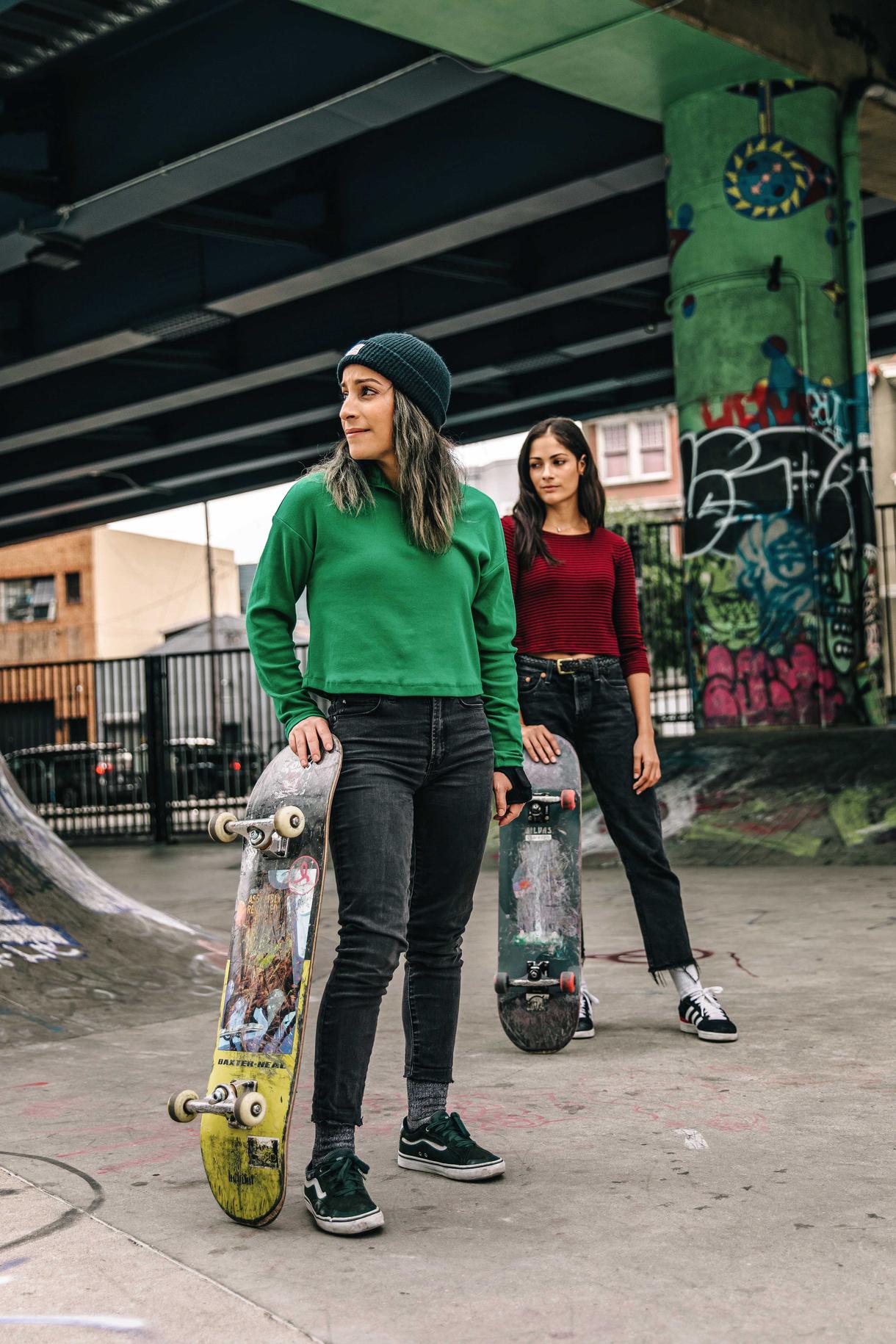
Sabrina: Celebrate all the baby steps. They’re such a big deal. If you tap your tail on the ground and it doesn’t pop and you still land on it, that’s your first ollie. Cheer yourself on. Every single baby step counts. And post it!
Marsha: Don’t be afraid to post that shit because whether you barely got off the ground or not, there’s probably like 100 girls watching your clips who are still working on pushing, and they’re so stoked to see that you learned how to push, and now you’ve moved on to the next part of learning how to do whatever in skateboarding. Everybody [on Instagram] wants to see everybody succeed and get better. That’s the best thing about skateboarding; there’s nobody watching your clips like, “Oh, I hope she breaks her ankle;” nobody’s thinking that. We all want you to get better and better and kill it harder and harder. So, being mindful of the fact that there are people watching you and getting stoked on your clips no matter how tiny the thing that you did was is really important, I think.
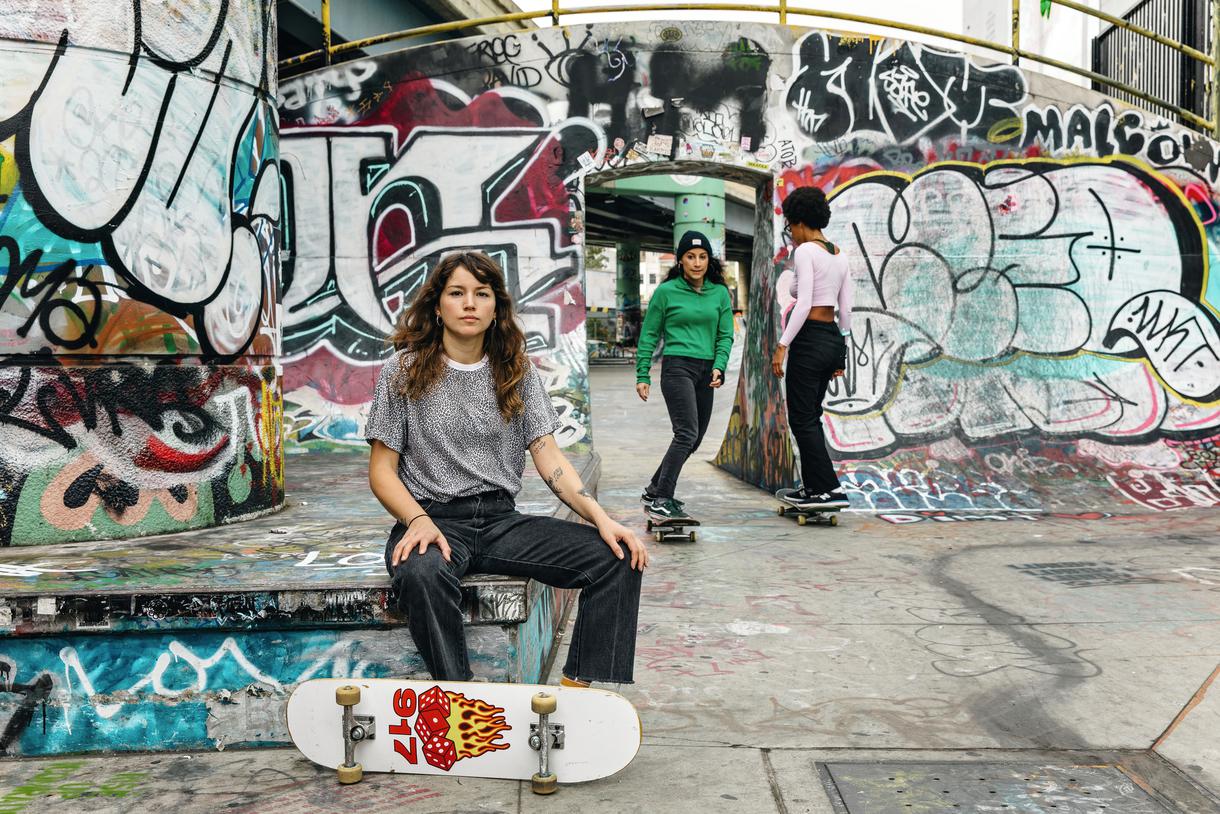
Marsha: I think the main challenge is people questioning why you’re at the skate park. That’s the #1 thing girls get. Guys assume you’re at the skate park because you’re trying to get a boyfriend, or you’re at the skatepark because your boyfriend is there and you picked up a skateboard just ‘cuz—there’s all kinds of weird accusations. Things get thrown around about why women are at the skate park, and even if you are there because your boyfriend’s there and you just grabbed a board, you’re there and you’re having fun; like, F*** you to anyone who’s questioning that. Even if you are there to get a boyfriend, get a boyfriend, girl. You do you. Nobody should be worrying about anyone’s motives for being at the skate park. That’s your deal, and I’m just here to do my thing with my homies, and that’s that.
Michelle: I think that one of the most frustrating and challenging things about being a girl at the skate park is #1, the boys have advice. They always think that they know [more] and they want to help you because you’re like this little puppy that needs help. And #2, you’ll be working on a trick over and over again, and a boy will do it really slowly in front of you and not even say a word but be like, “This is how you do it,” and you’re like…
S.F. is really progressive, so a lot of the guys out here are much better than back in Texas when I was younger and growing up skating. They’ll get super hyped on an ollie, and I’ll be like, “This is just an ollie, but thank you.” But it’s better than having a guy be rude. The other day, when we were skating at St. Helena, I was trying to ollie a four-stair, and this guy came up to me and was like, “Just go faster and just pop that ollie,” and I was like, “OK.” And he comes back and goes, “You know, you’re kind of being a little pussy,” and I was like “Alright...”
Marsha: In that same sesh, it wasn’t that same guy, but it was a guy in his crew. When I went outside, he was like, “You’re kinda good for a girl.”
Michelle: It’s just the wrong thing [to say].
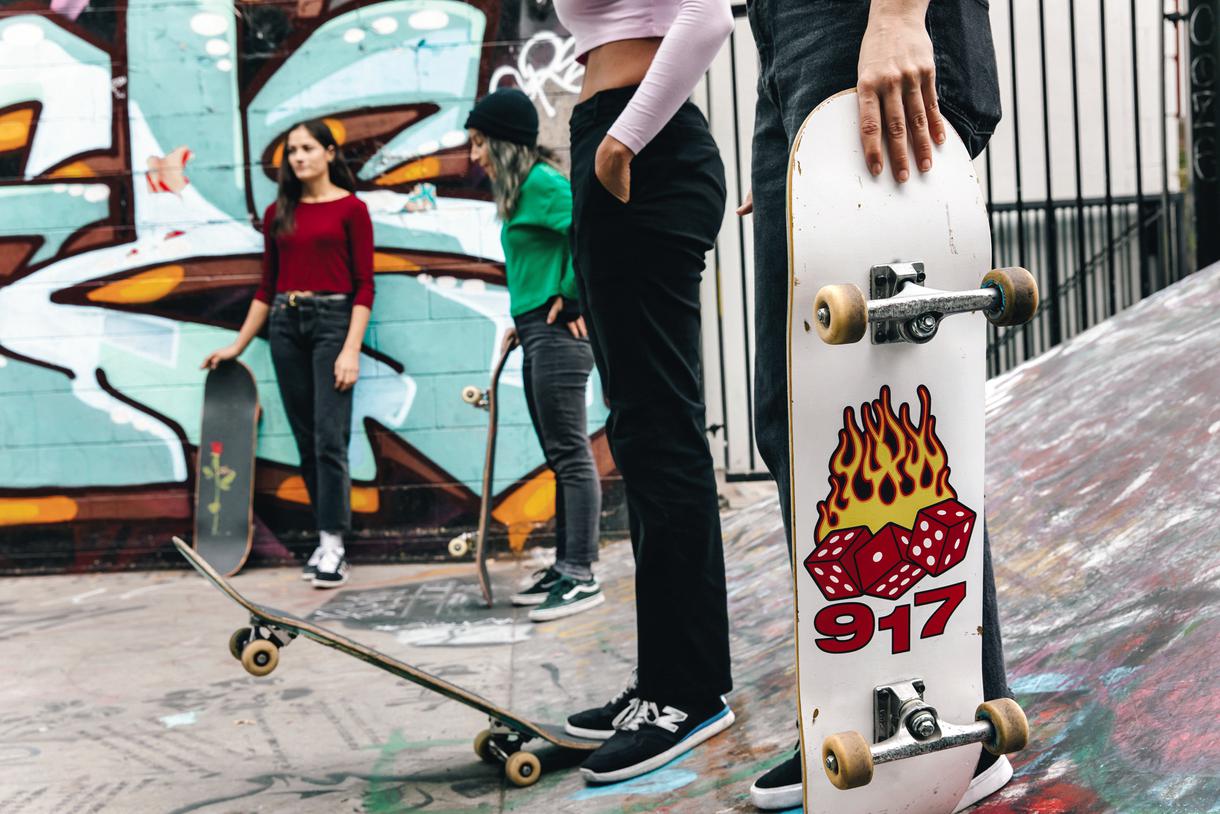
Marsha: Yeah, it was in the same session, and like, why even say that? Just by you saying that I’m good, I know that you’re saying for a girl—you don’t have to put it on.
Sabrina: Yeah, the male gaze and the “even I can’t do that”s are always really fun to deal with. I feel like there’s also the conditioning that girls grow up with to feel like they shouldn’t take up space and they shouldn’t be aggressive and they shouldn’t be falling and getting hurt. Overcoming that [was hard], at least for me. I remember skateboarding changed my life so much because I saw myself as this kind of fragile thing that couldn’t handle the impact. Then when I started falling, which I know I don’t always fall, but the first few times I really took a slam, I was like, Nothing broke, I’m fine, so it really helped me gain that confidence.
Natalie: The comments can be pretty annoying. I was really scared in the beginning, and I felt really intimidated by everything. It’s overwhelming when you get to the skate park and people are going super fast. Where do you start? What do you do? You don’t want to feel like you’re in the way—that’s definitely how I felt. But I think that skating with girls makes you push through those hardships and feeling that way because, yeah, we’re all here together, and we’re here to share the same area that we’re skating.
Nobody should be worrying about anyone’s motives for being at the skate park. That’s your deal, and I’m just here to do my thing with my homies. Marsha

Sabrina: Also, a lot of men will pit women against each other and try to compare women to each other, I’ve noticed. They’ll be like, “Oh, she’s hotter, but she’s better at skating,” or even call me @skatemosss [Victoria Taylor], who, by the way, is way better than me at skating, and I would kill to have her bag of tricks. But it’s like, why is that even an insult first of all? And she’s awesome, so why would you even want to pit women against each other? But it’s nice to see how many of us stick together. Women don’t do it to each other, so it’s been really empowering to hear men trying to do that to each other and us being like, “Uhh, she’s amazing; don’t even put that name in your mouth.”
Marsha: I get that all the time: “Who in your crew has the best kickflips? Who in your crew can ollie the highest? Who in your crew… ?” Like, shut up, bro. I don’t know; I’m not watching everybody’s kickflips to say, “Okay, yours is the best.”
Michelle: And since when is this a competition?
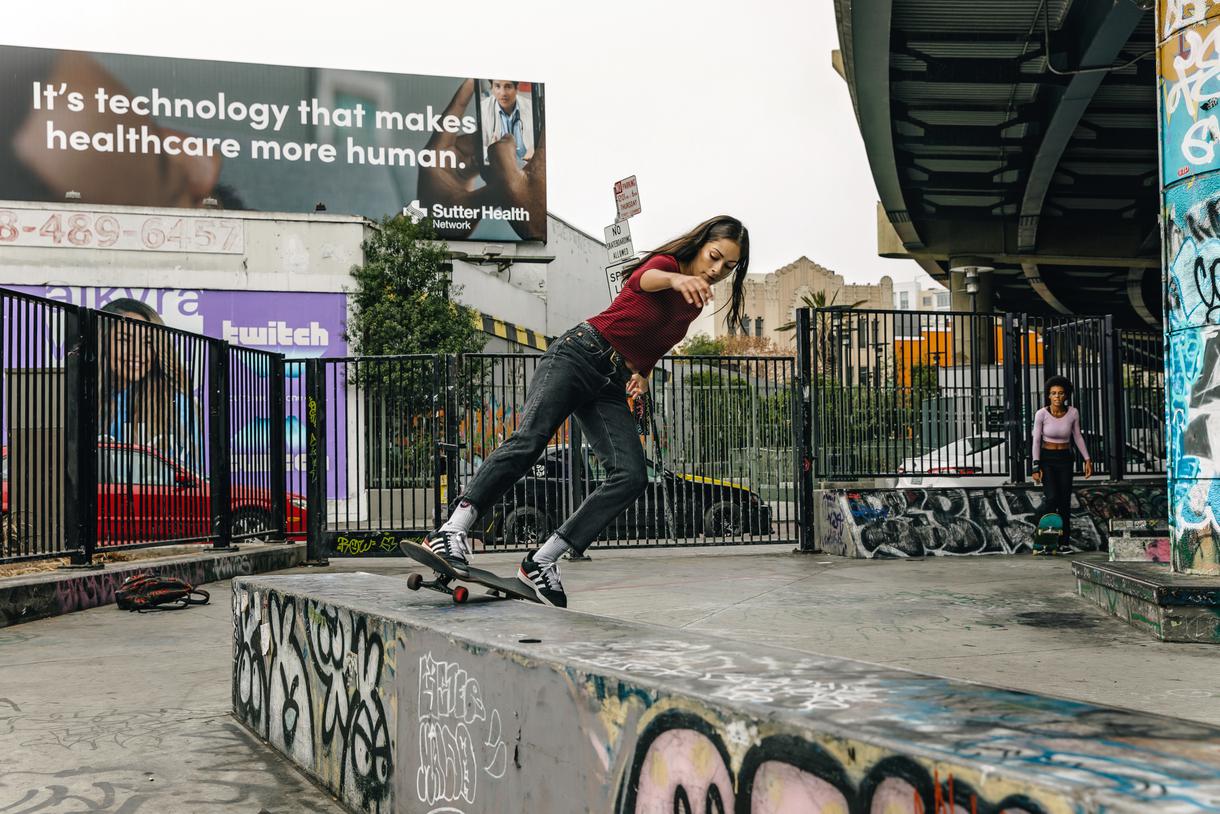
Sabrina: I’m just stoked to be like, “Yeah, her kickflip is lit, and I know her.” It’s not like, Oh no, I can’t skate with her because she’s better than me. I’ve always wanted to skate with people who are better than me.
Marsha: That just goes to show what boys are thinking when they’re skating. The fact that they’re comparing, it’s like, that must be what you and your homies are doing. You must be really upset that your friend’s heelflip is better than yours; that’s not how our mindset works at all, but that’s what they’re pushing onto us. But it’s like, “No, we’re not thinking like that, but I’m sorry that’s what you’re thinking when you’re out skating.” It’s a totally different mindset. Boys are always trying to one-up each other or land the sickest trick, whereas we’ll just keep working on the same trick for like five hours, and that’s that. And maybe we didn’t even land it that day.
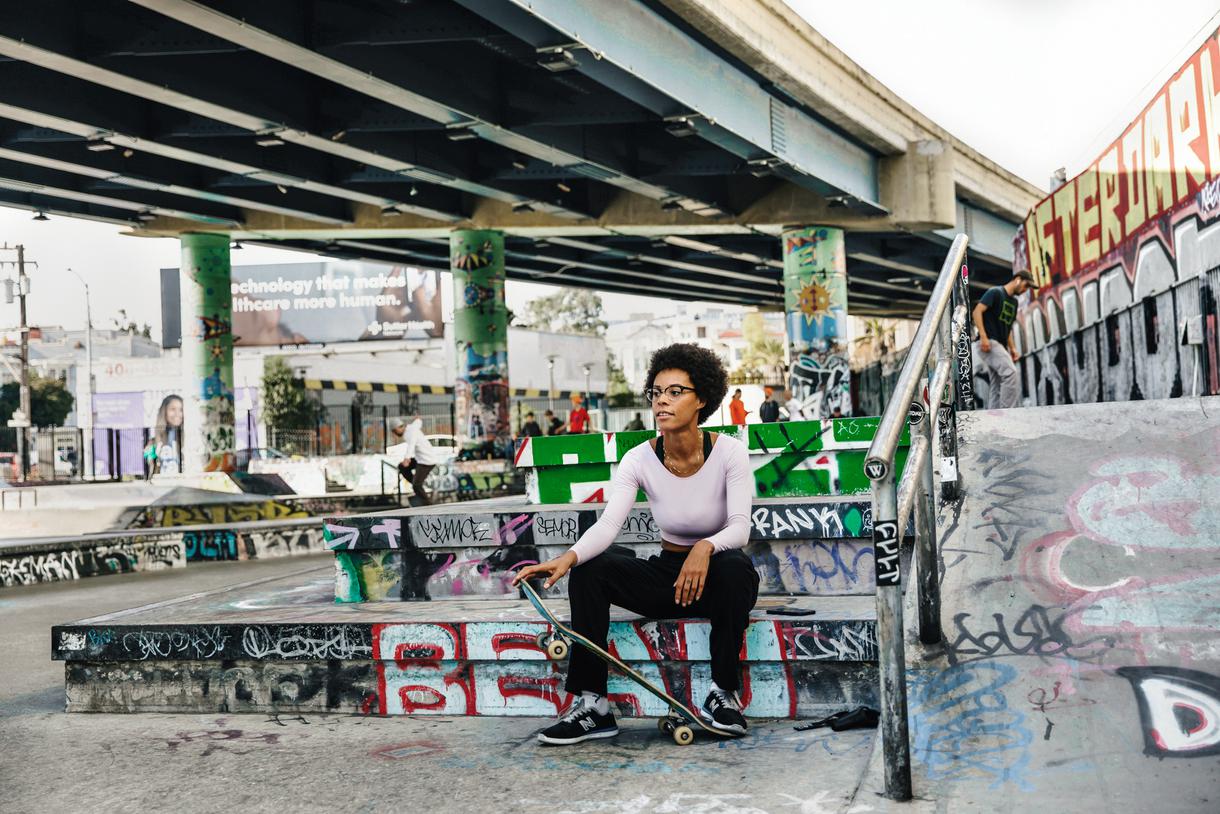
Natalie: I like going to Potrero [del Sol]. I like street spots a lot too, because sometimes I’m still shy. I can feel totally fine with myself by being at a spot that’s secluded, but being at the park is also fun. I like going to Fremont [Skate Park]; that’s a really fun park. There’s a new park in Newark, which is also super fun. Playland [at 43rd Avenue] is fun; it’s at a church in the Sunset.
Michelle: Most skaters will skate all the way from San Jose to the East Bay—like all skaters in S.F. because it’s all close. But my favorite places in the city are Potrero [del Sol] park and Bricks in the Embarcadero Center. Bricks is a very famous skate spot known worldwide and [has been] featured in skate videos for many decades.
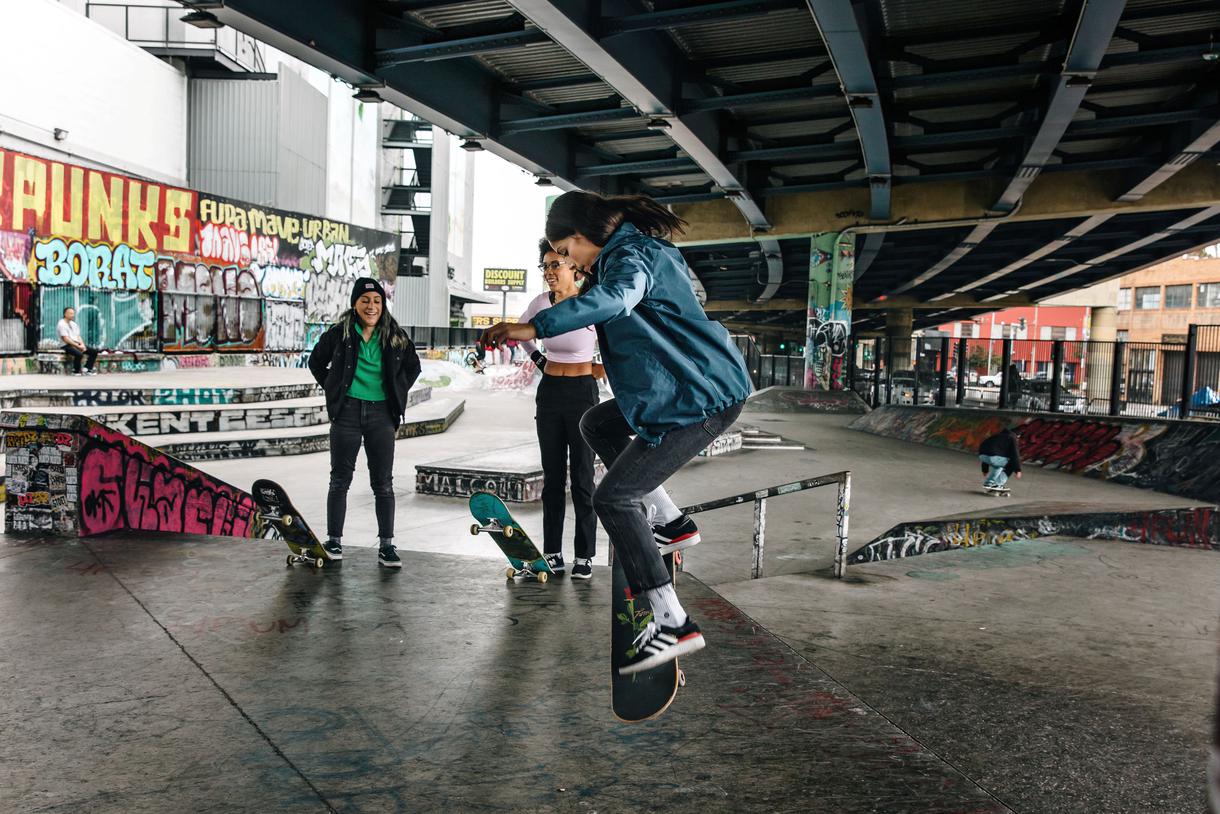
Sabrina: There’s a lot of really fun spots in the city. I think the prettiest that I go to take pictures and stuff is Fort Miley. But some of my favorite places are Potrero for transitions, EMB, and piers because they’re beautiful and there are always other skaters around.
Marsha: My favorite place in the city to skate is wherever my friends are all meeting up on any given day. Any spot can be fun when I’m with my crew.
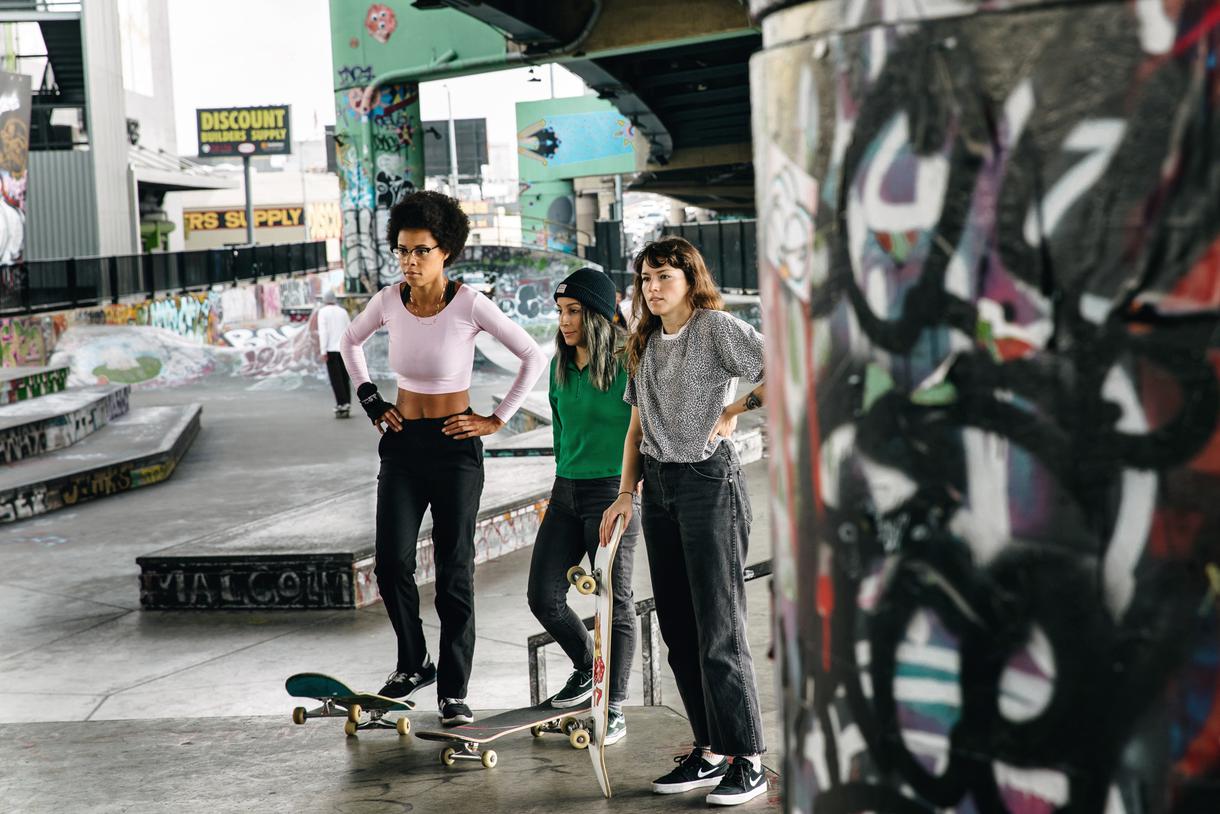
Natalie: When I’m not skating, I’m working. I’m an X-ray tech, so I work at a children’s hospital. I do crafting a lot, too. I make art and sell it. I have an Instagram page for it, and I’m getting a website for it.
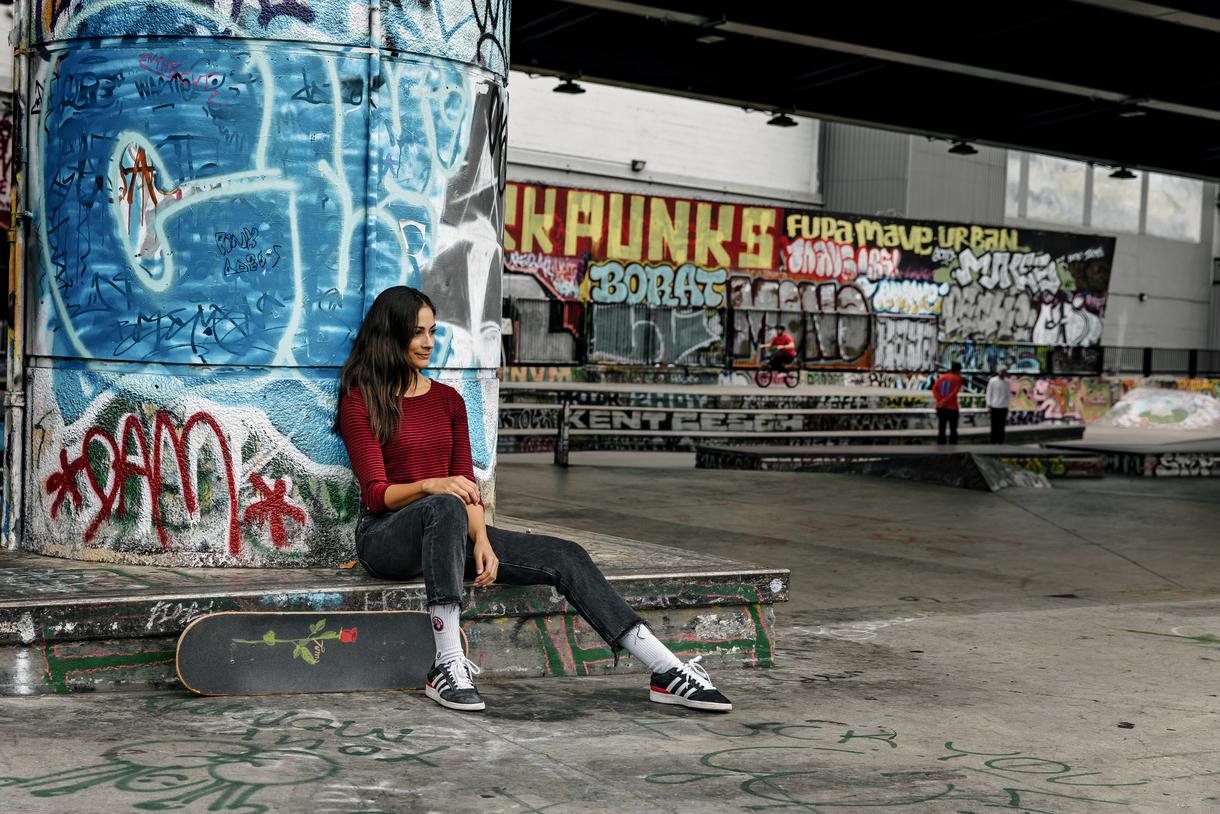
Michelle: Outside of skating, I take film photos and shop at vintage stores.
Sabrina: If I’m not skating, I’m working as a producer, creating something artistic, or out enjoying nature somewhere.
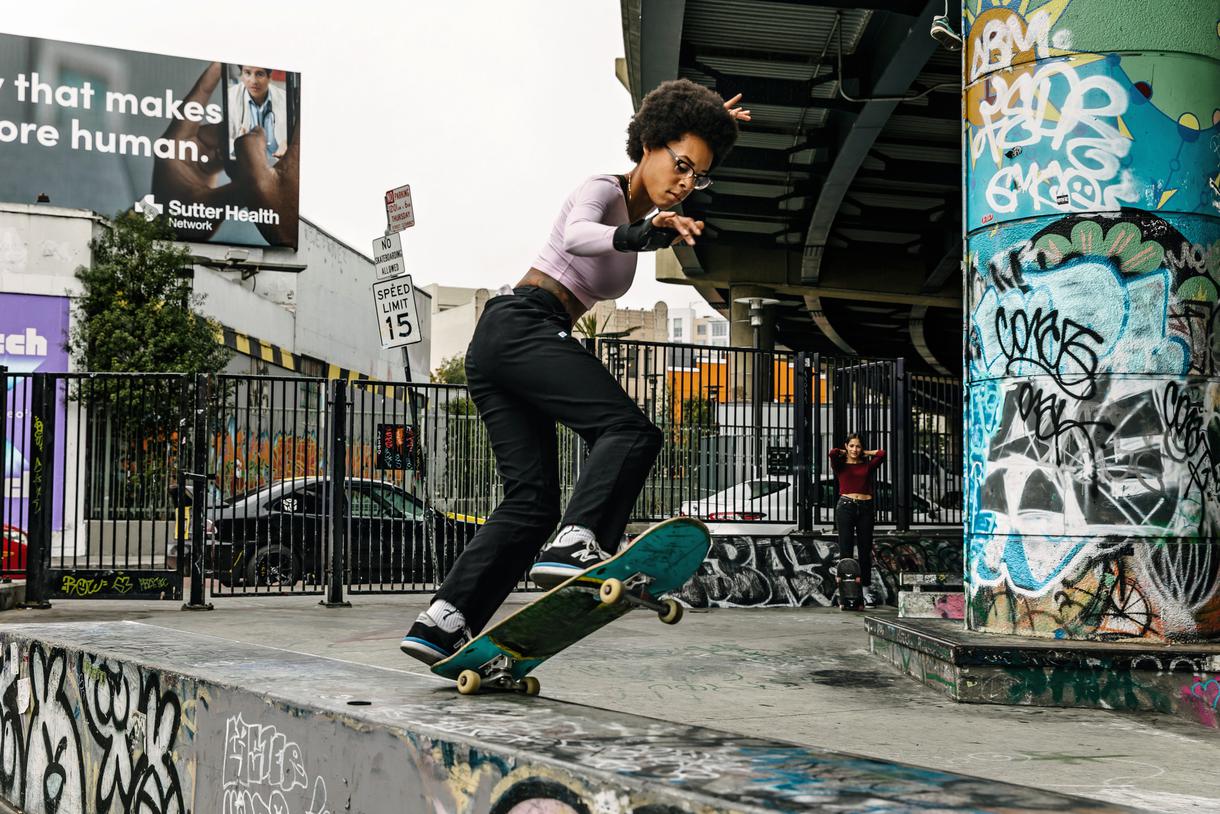
Marsha: I’m a senior at SFSU [San Francisco State University], graduating this semester with a degree in child and adolescent development; I will be attending USF [University of San Francisco] next year to receive my masters degree in education, so when I’m not skateboarding, I’m doing homework.


Never been before? We’ll be your trustee Little Tokyo guide with a day’s worth of fun things to do in Little Tokyo.
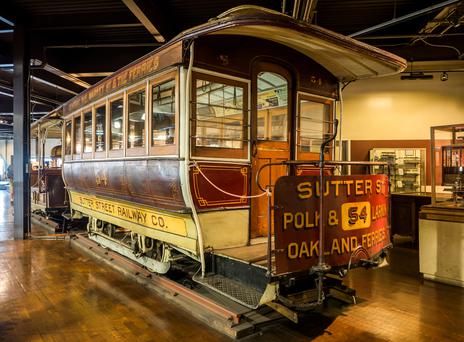
If you're looking for something fun to do, there are plenty of fun and free things to do in San Francisco, use our guide to help make plans.

Feel the knowledge flood from its elegant red-tile roofs as you wander the town’s beautiful college campus in search of hidden finds.

Enjoy the perfect California spring weather at these ideal spots for a spring vacation in California.
